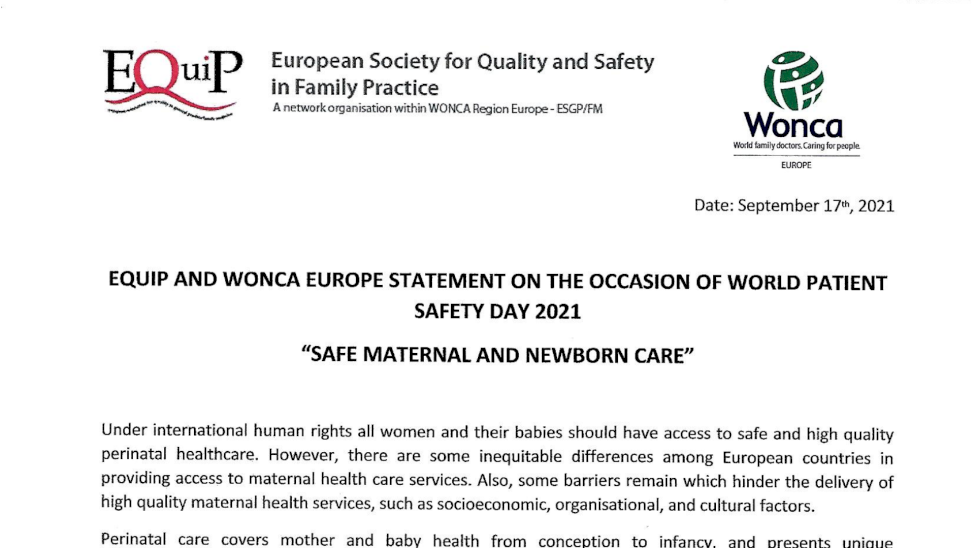Under international human rights all women and their babies should have access to safe and high quality perinatal healthcare. However, there are some inequitable differences among European countries in providing access to maternal health care services. Also, some barriers remain which hinder the delivery of high quality maternal health services, such as socioeconomic, organisational, and cultural factors.
Perinatal care covers mother and baby health from conception to infancy, and presents unique opportunities to promote health and wellbeing. During pregnancy and after the childbirth, some European women face issues that affect their health and the health of their children. In particular, women from vulnerable groups, such as migrants, women with disabilities, imprisoned women etc. may experience unequitable health care. This can be in terms of access, health coverage, preventive care, awareness of support services and other. Pregnant women, like other women, may be subjected to domestic violence. In some European countries, maternal health care is more specialist led than person-oriented or community-based. There are variations in the duration of maternity leave available to women, and before pregnancy occurs, some women experience anxiety about the potential for pregnancy to impact on their employment.
In addition to all of the above issues of concern, the COVID-19 pandemic has greatly impacted on maternity care, with additional uncertainties associated with ongoing changing recommendations for managing COVID-19 infections and COVID vaccinations. These challenges are also observed globally.
Therefore, we urge policy makers, healthcare workers and society to:
- Enable equitable maternal health care for all women regardless of their status.
- Strive for universal health coverage in maternal health care.
- Create a positive culture where all women can feel safe when deciding to have a baby.
- Introduce a zero-tolerance culture for all types of violence against women and children.
- Perform maternal healthcare in a person-centred way with empathy and appropriate communication.
- Raise awareness of the need for professionals and patients to reduce avoidable harm in maternal and newborn care, including through public health campaigns.
- Implement the necessary changes to healthcare systems to reduce the impact of COVID-19 pandemic on maternal health.
| Dr. Andree Rochfort EQuiP Patient Safety Group |
Prof. Zalika Klemenc Ketiš EQuiP President |
Prof. Shlomo Vinker WONCA Europe President |

